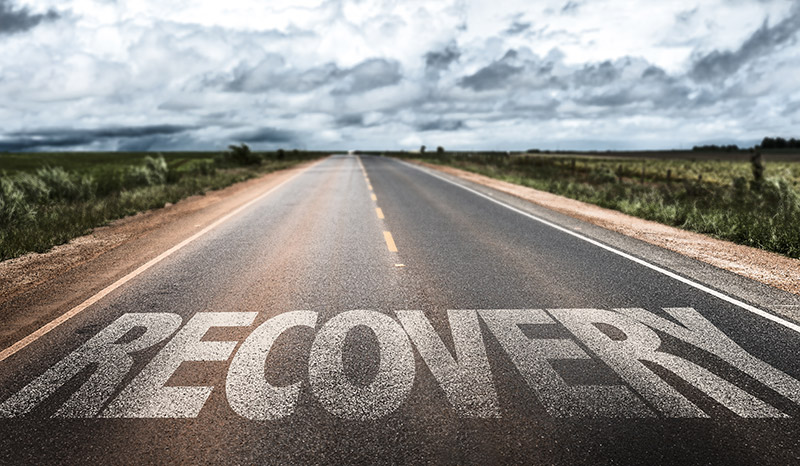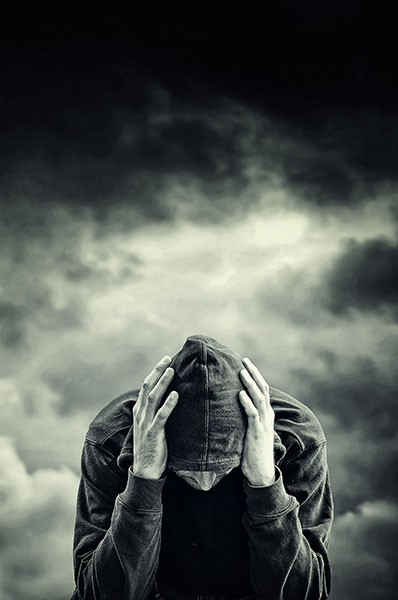PCP (Phencyclidine) Addiction Treatment & Rehab
PCP (PCP (Angel Dust): Effects, Hazards & Extent of Use) is a strong pain killer and anaesthetic that produces a wide range of effects that at times can be pleasant but are just as likely to be scary and uncomfortable. You may feel like the cycle you are in is inescapable and that you are at rock bottom, but there is help available, treatment can begin at any point in your PCP use journey.
Taking the time to understand your need for PCP and the treatment options available will help you in choosing a life free from the grip of PCP.
Understanding PCP (Phencyclidine) Addiction
PCP can produce dreamlike, ‘floaty’ or numb feelings, change your perception of reality, produce hallucinations and make you feel upbeat and happy. These effects can be very enticing especially if you are trying to escape the reality of your life. Repeated use builds up a tolerance in your body and though developing an addiction wasn’t your intention, it may have taken hold of your life.
As a chronic disease, addiction can be treated through evidence-based rehabilitation programmes, if you are concerned that you or someone you know has used PCP, contact us.
If you would like to learn more about residential rehab or would like to speak to an expert regarding the different treatment centres here in the UK, please give us a call.

Why PCP (Phencyclidine) Addiction Treatment is Necessary
The sooner treatment for PCP addiction is started the better, PCP can lead to mental health issues that range from mild to severe:
- Psychosis
- Memory Loss
- Cognitive problems
- Hallucinations
- Depression
In addition to that, you may also suffer from weight loss, low blood pressure, shock, stupor and violent tendencies. (PCP: Effects, Risks, and How to Get Help)

Treat the Addiction, not the PCP (Phencyclidine)!
No single treatment suits every person, you will require a comprehensive treatment plan that includes therapy, medication, mental health assessments and treatment that has been structured around you will show a better long-term outcome.
Suffering from a PCP addiction doesn’t mean there is something inherently ‘wrong’ with you despite what society may have led you to believe. Addiction is a chronic disease and deserves the same compassion, love, and support offered to someone with cancer.
Don’t be afraid to admit you have a problem
Addiction is an isolating disease that has left you feeling alone, unloved, and unable to escape.
The fact that you are looking at the options available to you for treatment means that hope is not lost, reach out to our team and let us assist you in finding the right programme for you.
Choosing a Treatment Option
There are no specific approved treatments for PCP abuse and addiction. You may need to be hospitalized and receive behavioural treatments to address your PCP use disorder. (PCP (Angel Dust): Effects, Hazards & Extent of Use)
Treatment for PCP addiction should be done over a period of time in a supervised facility, your withdrawal symptoms can begin within hours of your last dose and can last for days and even re-emerge over weeks as the PCP is eliminated from your body, these symptoms may include:
- psychosis,
- bizarre behaviour,
- Depression
- anxiety,
- irritability,
- restlessness,
- Anergia – abnormal lack of energy
(Phencyclidine Intoxication and Adverse Effects: A Clinical and Pharmacological Review of an Illicit Drug)
Private Rehab
Private rehabilitation offers a chance for you to receive the care, support and therapy you require as part of a holistic programme, you will find it easier to focus on your recovery as a resident in a private rehabilitation facility where you can avoid the temptation of PCP while receiving therapy.
How does Private Rehab Work?
After a complete evaluation or assessment, your treatment programme may include:
Detox – is the first stage of a treatment programme for PCP and precedes rehabilitation, it is important that you feel safe and stable during your withdrawal, so depending on the symptoms you experience, medication may be administered as supportive care.
- Benzodiazepines may be used to control psychiatric symptoms (PCP: Effects, Risks, and How to Get Help)
- Haloperidol or another antipsychotic may need to be taken if there are any psychotic symptoms present.
Your breath rate, circulation, and body temperature will also be carefully monitored and controlled if needed.
Rehab – Detox is not a cure for PCP addiction, a well-rounded treatment programme that looks at your entire person, mentally, emotionally and physically is the most beneficial.
- Behavioural therapies, such as CBT, REBT show the best results in long term recovery
- Exercise and creative therapies assist with forming new habits that are healthy and methadone free whilst restoring self-esteem and a sense of accomplishment.
- Family and Group therapy
Secondary treatment – either whilst still a resident in a treatment centre or as an outpatient, secondary treatment assists with reintegration back into a life free from methadone, therapy is continued to address any further underlying issues you may have.
(Rehab for Treating Addiction)
Choosing a Rehab Centre
A rehab centre that best suits your individual needs, the severity of addiction and offers the best treatment plan for you takes some consideration:
- Where are they located? Being away from your environment may be more beneficial with less temptation
- Do they have a decent CQC rating? All residential treatment centres in the UK are regulated by the Care Quality Commission (What we do | Care Quality Commission), the independent regulator of health and social care in England. All centres are individually rated to ensure that they meet the fundamental quality and safety standards for your care and treatment.
- Is the treatment team credible, certified and experienced in dealing with PCP addiction?
- Does the centre offer a treatment program that you like? different treatment centres utilise different therapeutic models:
- 12 Step Model -A spiritual abstinence-based programme pioneered by Alcoholics Anonymous (AA) where the belief is that addiction is a disease. The programme focuses on your motivation to change your addictive behaviours within the treatment and recovery process. (The 12 Steps of Recovery Programs)
- Non 12 Step Model – These programmes focus on addiction’s multifaceted issue and offer a treatment programme that includes both physical and psychological therapy.
- Medical – Does the treatment centre offer medical assistance to aid your recovery? Can the centre provide medication to assist with your withdrawal?
There is a wide range of treatment facilities available throughout the UK and we can assist in finding the best fit for you.
Residential Rehab VS Outpatient Treatment
Whilst PCP withdrawal is not always severe, there is no way of knowing how you will react so medical assistance is always recommended.
Residential Rehab facilities are generally private and can offer safety and supervision during all the phases of addiction treatment from detox through to aftercare and sometimes even assisted living.
Outpatient Treatments may offer some of the same features of residential care but allow you to stay at home and fulfill your everyday responsibilities and obligations such as work or caring for your children, unfortunately, this won’t remove you from the temptation of PCP or the triggers that have caused you to need PCP.
Types of Behavioural Therapies for Treating Addiction
Cognitive Behavioral Therapy (CBT) – the tenet of CBT is that all humans’ core beliefs can be summed up in three categories: self, others, future. (Cognitive Behavioral Therapy (CBT): Definition, Types, Techniques, Efficiency)
Rational emotive behaviour therapy (REBT) – identifies irrational beliefs, actively challenges these beliefs, and teaches you to recognise and change these thought patterns.
(Different approaches to psychotherapy)
Acceptance & Commitment Therapy (ACT) is compatible with the 12 step program, both approaches enforce acceptance of your addiction and a broad life reorientation as opposed to just elimination of the substance use.
Dialectical Behaviour Therapy (DBT) – DBT is about developing a therapeutic alliance between you and your therapist through unconditional acceptance within a climate of loving-kindness.
Multimodal Therapy – Also known as Combination Therapy, where a dual diagnosis is made (mix of mental health issues and substance abuse) there may be a need to treat both issues simultaneously, since trauma, family history, depression, etc may have led to your addiction developing, just treating the addiction is not enough, your mental health also requires treatment to prevent relapse. (Multimodal Therapy: Overview of Principles, Barriers, and Opportunities)
Some people may experience flashbacks and hallucinations for a long time after using PCP. This is known as hallucinogen-induced persisting perceptual disorder (HPPD). (PCP (Phencyclidine): Facts, effects and health risks)
Paying for Treatment
Private rehab facilities are generally paid for by the client, some offer a payment plan where the final payment is made on discharge.
In some cases, clients have received funding from benefactors, charity groups or their families.
Free Outpatient Services
The NHS (The NHS website – NHS) only offers outpatient care for the treatment of addiction and there can be waiting lists before you may start treatment in your area (Find Drug addiction services), so if you require urgent admission, contact us and we will help you find the right private treatment centre for your needs.
In cases where your withdrawal is very uncomfortable, free outpatient services may not be able to assist with your detox as closely as you can expect from private rehab centres and the medical assistance may not be as focused as you need.

Advice on Quitting PCP (Phencyclidine)
Staying sober is a huge commitment and a change that you may feel is scary or even beyond your capabilities, but with continued therapy, support, compassion and re-affirmation of your commitment, long-term recovery is indeed possible.
Ensure that your home is free of any PCP paraphernalia (needles, syringes, baggies, pills, liquid etc), try and stay away from the environments and ‘friends’ that you may have used PCP with in the past.
Incorporate the new healthy lifestyle changes you have learnt in therapy into your life and concentrate on the new skills, hobbies and interests you to help keep your focus on sobriety and recovery.
Support Groups are Useful
Rehabilitation is only the first phase of your recovery and healing from addiction, having long-term involvement in therapy and with support groups such as:
- Involve your family in your therapy, and give them options to join support groups that are dedicated to helping families, friends and loved ones of addicts:
- Adfam (Useful organisations)
- Families Anonymous (Famanon)
- SMART recovery UK (Self-Help Addiction Recovery | UK Smart Recovery) will be able to assist you through their 4 point programme.
